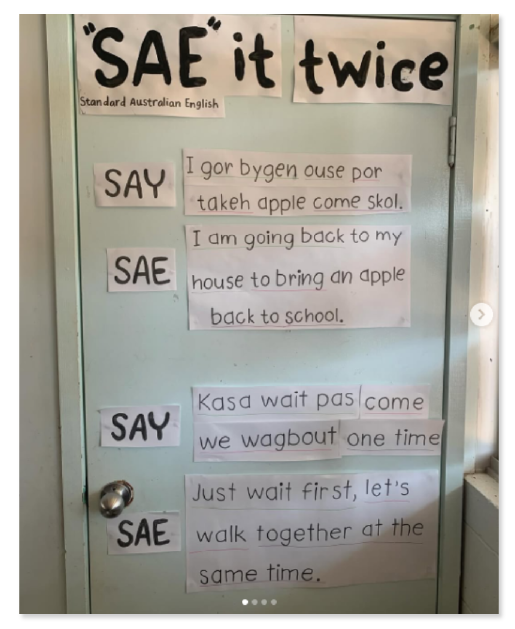Articles & Videos
From inspiration to impact: How one teacher found their purpose in the Torres Strait Islands
Categories
Subscribe to our newsletters
Receive teaching resources and tips, exclusive special offers, useful product information and more!
From inspiration to impact: How one teacher found their purpose in the Torres Strait Islands

Teacher Spotlight is a series by Firefly Education that shares insights from a variety of education influencers who inspire fellow teachers with their unique classroom knowledge and helpful resources.
At 18, Emily Graham travelled to Thailand and was deeply moved by the poverty faced by local communities. Wanting to help, she asked what she could do—and discovered that many aspired to learn English and pursue education as a means to secure employment and build a better life beyond their villages.
That experience inspired her to become an educator, committed to empowering individuals from all backgrounds.
When Emily began studying, friends encouraged her to also undertake rural classroom experience in the community of Eidsvold, Queensland. While there, Emily loved learning about the rich and complex culture of the local Wakka Wakka people. For her final year of placement, she decided to broaden her experience of teaching in rural and remote communities further, and set off to Erub Island in the Torres Strait (Zanadth Kes). Since then Emily has taught on Boigu, Mabuiag, Warraber and Iama islands, before taking up her current role at Tagai State College on Waiben (Thursday Island).
Teaching English in multilingual classrooms
When Emily started working with her students at Tagai State College, she was amazed at their ability to code-switch between the two primary languages spoken on the island – English and Torres Strait Creole.
‘The most important aspect of teaching in the Torres Strait, I believe, is for teachers to have a deep understanding of the importance of embracing both English and Creole in the classroom,’ she said.
After understanding how important it was for her English lessons to be tailored to accomodate the needs of her multilingual students, Emily began implementing an approach she calls ‘SAE it twice’.

‘We write a sentence in Creole (with local support) and translate it into Standard Australian English (SAE). This promotes a respect for both languages and develops the students’ fluency across both languages.’
Emily believes this approach encourages students to foster a strong relationship with their language and their cultural identities more broadly.
Meaningful engagement with community
During her time on Waiben, Emily has learned the importance of engaging with the local community both personally and professionally.
‘I believe it’s important to establish a level of respect and trust in community and to build strong connections with families to encourage parents to become part of their child’s learning.’
Of course, language barriers can make it challenging for parents to communicate with schools, which can hinder their overall involvement. Emily addresses this by actively working to break down those barriers. She builds trust within her community through active participation, learning the language and respecting cultural protocols.
‘As teachers we have come up to these regions to teach, but more than that, we need to listen and learn,’ she said.
Establishing these relationships with her community also enables learning to extend beyond the classroom. ‘It’s encouraging to see local Aboriginal and Torres Strait Islander community leaders who are succeeding in their careers. I get to remind the students, that could be them one day if they study hard, keep learning and push themselves to be better.’
Finding balance in a new place
Naturally, living and working remotely can have its challenges. ‘There are some days where you want to give up, but then a student will write an amazing sentence, spell a hard word right or read a tricky word and you get to be there to celebrate that.’
Emily’s sociable lifestyle on Waiben plays a key role in balancing the demands of teaching. From dinners to running and swimming, she’s built a strong circle of friends she loves spending her free time with. These connections—both from work and the wider local community—help her maintain perspective and avoid the constant focus on work. She’s also come to deeply value the importance of cultivating friendships outside her professional life, recognising how they contribute to a healthy, fulfilling lifestyle that keeps her mind, body, and community relationships strong.
Advice for new teachers
For any teachers looking to teach in rural and remote places such as the Torres Strait, Emily recommends coming in with an open mind and heart and to embrace local culture fully.
‘We are so privileged to work in a region where you are welcomed with open arms and your work is appreciated. Don’t just come up to tick a box, get your transfer and go. This is a time in your career where you will learn more than you will ever teach, and the impact you have on these students will last a lifetime!’
You can follow Emily’s remote teaching journey on Waiben on Instagram @myislandclassroom.